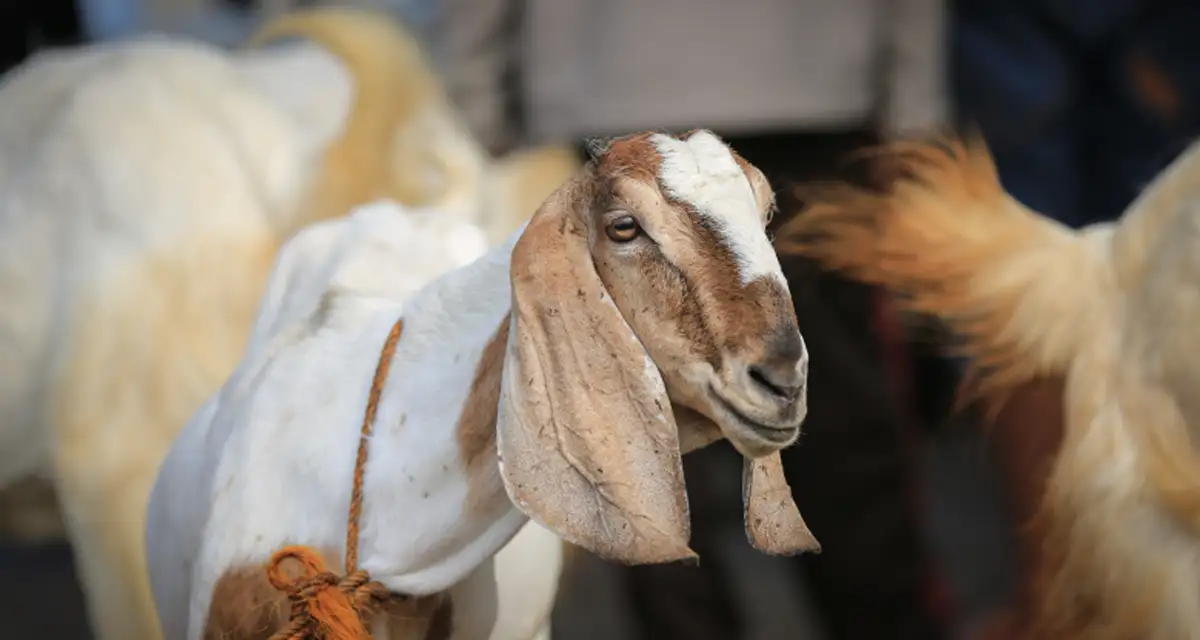
The Uganda Muslim Supreme Council, through the Mufti of Uganda, Sheikh Shaban Ramadhan Mubajje, announced this year’s Eid Al-Adha will be celebrated on Friday, 6th June, 2025. And as further announced by the government of Uganda, tomorrow is a public holiday and here’s how it’s celebrated…
Faith, Family, and Giving: Eid Al-Adha in Uganda
Before Enkya Idi, Luganda for tomorrow is… Eid in Uganda is ushered in with the eager question, “When is Eid?”
As the crescent moon emerges, signalling the arrival of Eid Al-Adha, the ‘Feast of Sacrifice’ for Muslims around the world, the resounding call of “Allahu Akbar” (God is Great) erupts from mosques across the country. A joyous spirit sweeps through the air, honouring Prophet Ibrahim’s great faith in Allah.
And the day dawns bright.
Mosques across Uganda come alive. Streets teeming with Muslims, neatly dressed in white Kanzus and Sharia dresses, each carrying a mat. It’s Iddi! Influenced by the crowd size, the faithful gather within the mosque walls or in open fields for prayers, a tradition echoing the early days of Islamic faith.
Imams lead these morning prayers with their voices rising above the murmur of the faithful. Long rows of Muslims bathed in the morning light, bowing and prostrating in unison, a powerful display of collective faith.
Eid Al-Adha is centred around a symbolic act of sacrificing an animal, a reminder of Ibrahim’s willingness to submit entirely to Allah’s command. After the prayers, choice sheep, goats, and cows are slaughtered, and the meat is divided into three parts: one portion to nourish the family, another is shared among friends, while the final third finds its way to those less fortunate. This act of sharing embodies the true essence of Eid Al-Adha: compassion and community.
As the afternoon sun rises higher, the spirit of celebration takes centre stage. The atmosphere hums with the savoury promise of feasts. The sacrificial meat is prepared alongside rice and traditional Ugandan dishes like Matooke, a culinary tapestry of flavours. Laughter and lively chatter mingle with the sizzle of spices hitting hot oil as families and friends gather to celebrate. Excitement stirs as invitations take flight, a continuous stream of phone notifications, voice calls, and laughter ripples through the streets, inviting neighbours to the feast.
For Muslims in Uganda and beyond, Eid Al-Adha transcends mere celebrations; it is also a time for reflection. On this day, Muslims reaffirm their commitment to Allah and the fundamental principles of Islam. They meditate, not in a yoga sense, on the story of Ibrahim, drawing strength from his deep faith in Allah.
This period also nurtures a strong sense of community. Visits to extended families and friends become the order of the day. Homes open wide, embracing loved ones and even non-Muslim acquaintances to share this joyous spirit. Ooh, the inclusivity of Eid Al-Adha.
Charity, another cornerstone of celebrating Eid in Uganda. Muslims generously donate money, food, and essential items to those in need. This outpouring of compassion reflects the core message of Eid Al-Adha: to extend a helping hand and strengthen the bonds within the community.
Eid Al-Adha is a national holiday in Uganda, allowing citizens to fully partake in the festivities. Businesses and government offices close, and schools often take a day or two off, extending the celebration.
Summary: How Eid Al-Adha is Celebrated in Uganda
With faith, Eid Al-Adha in Uganda is celebrated through prayer, sacrifice, food, and acts of generosity. Eid Mubarak!